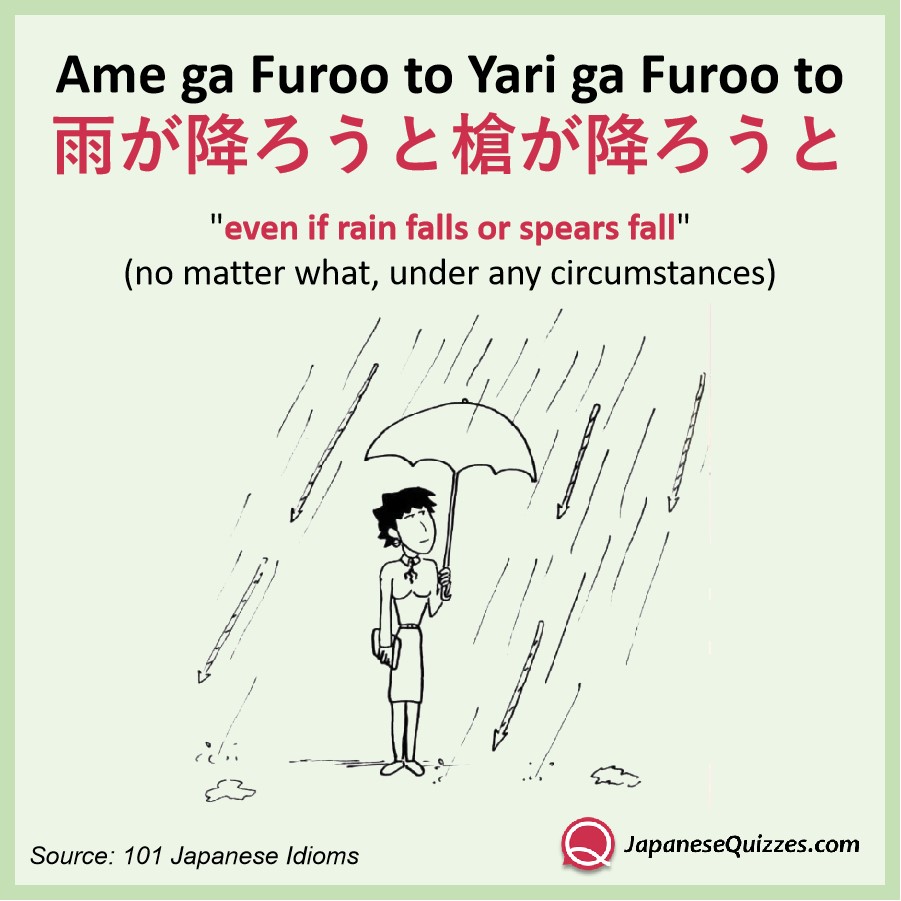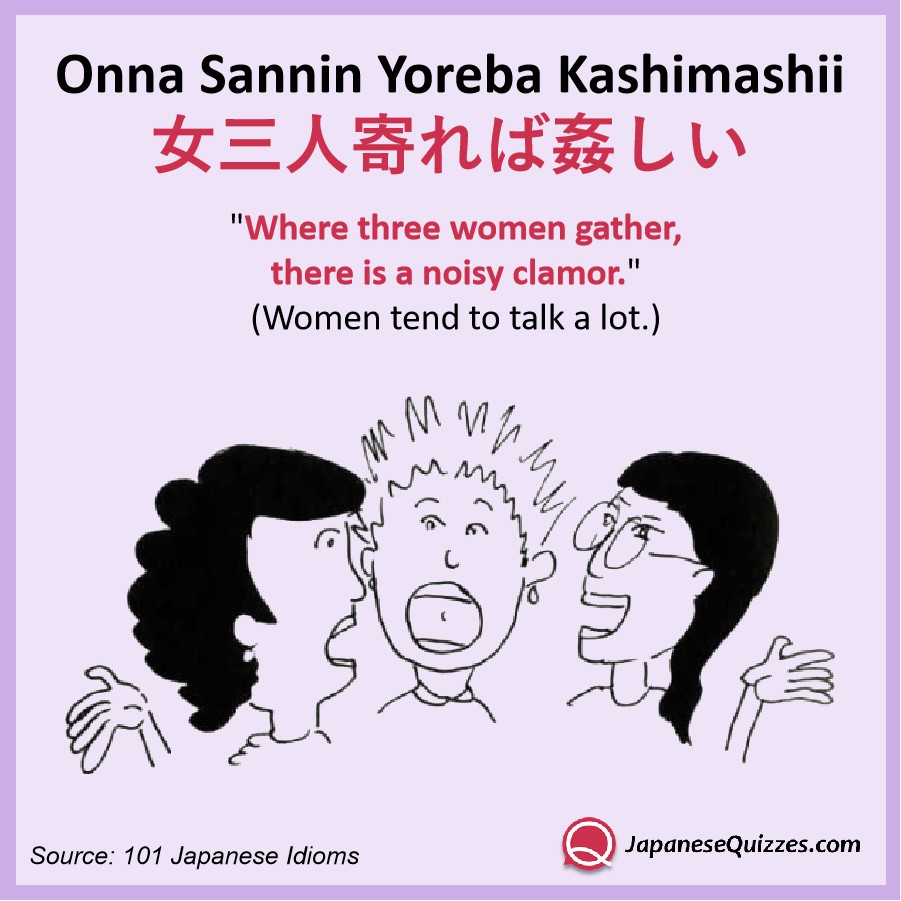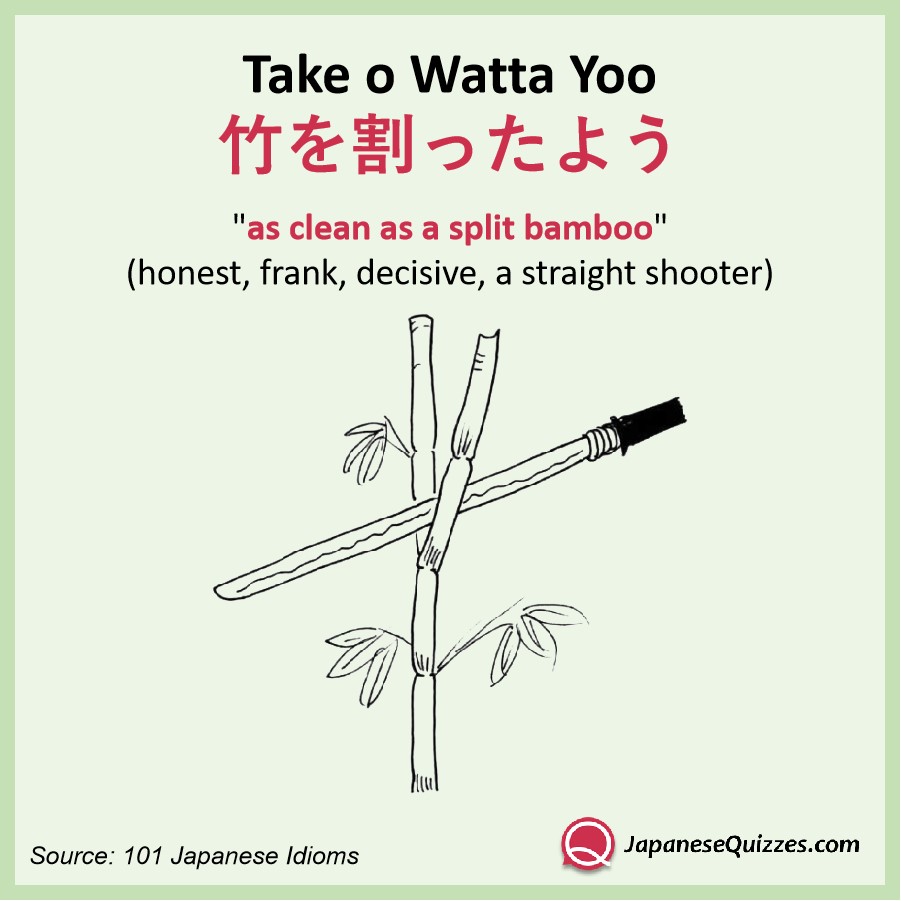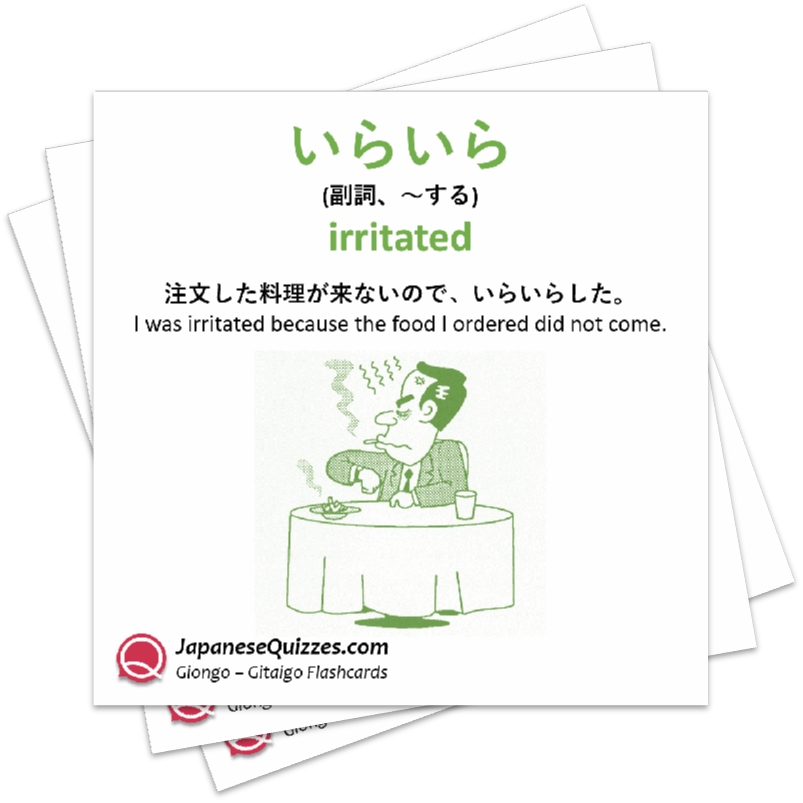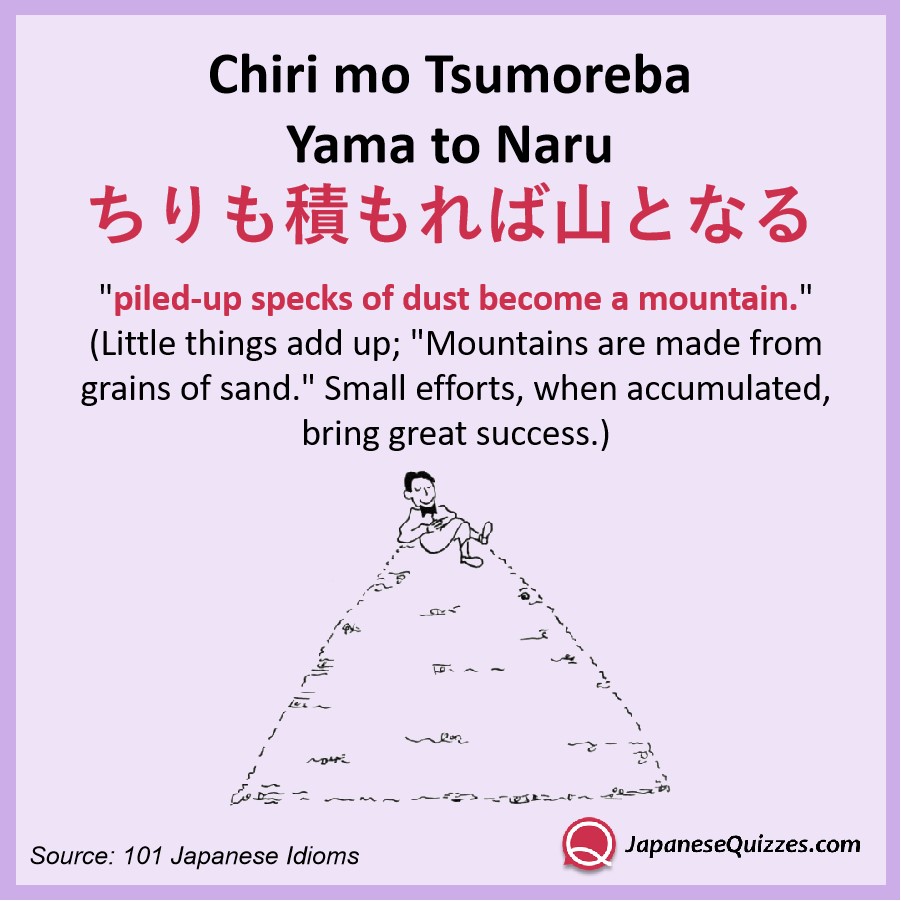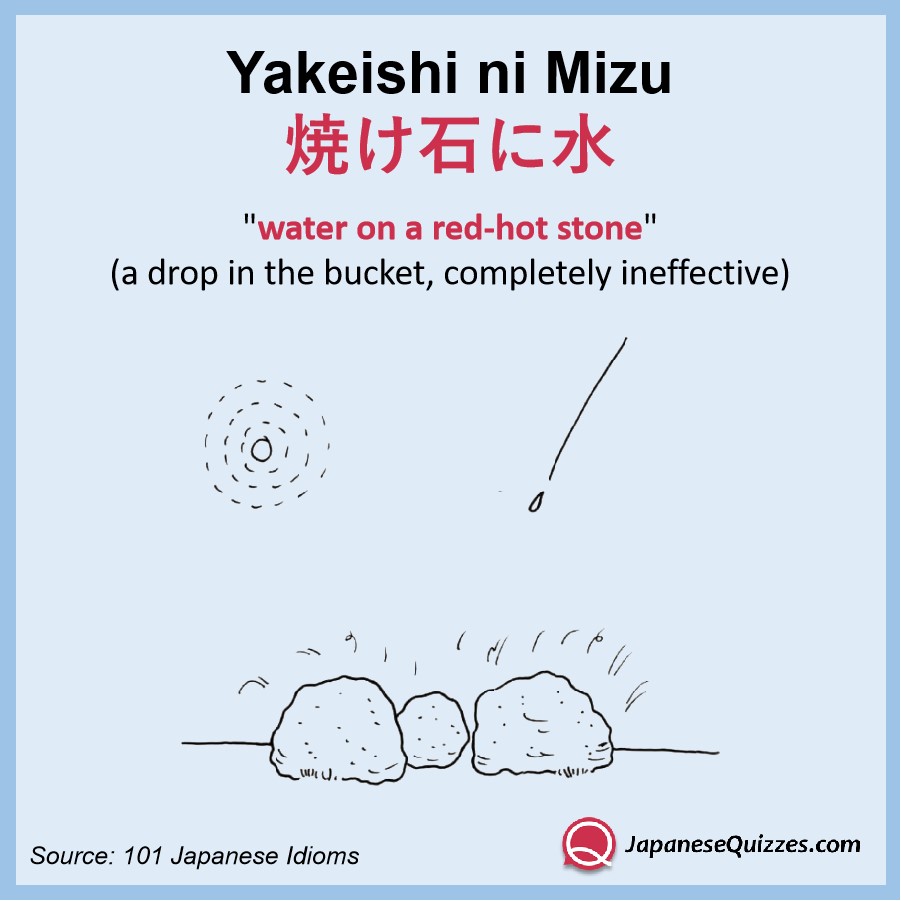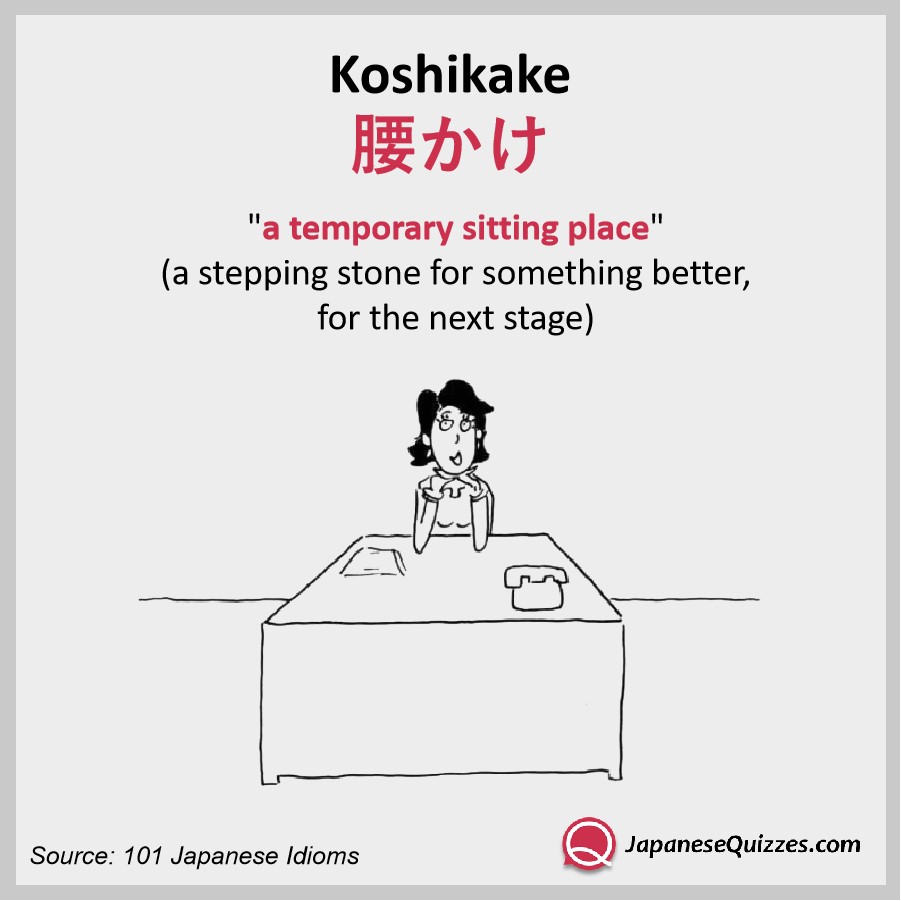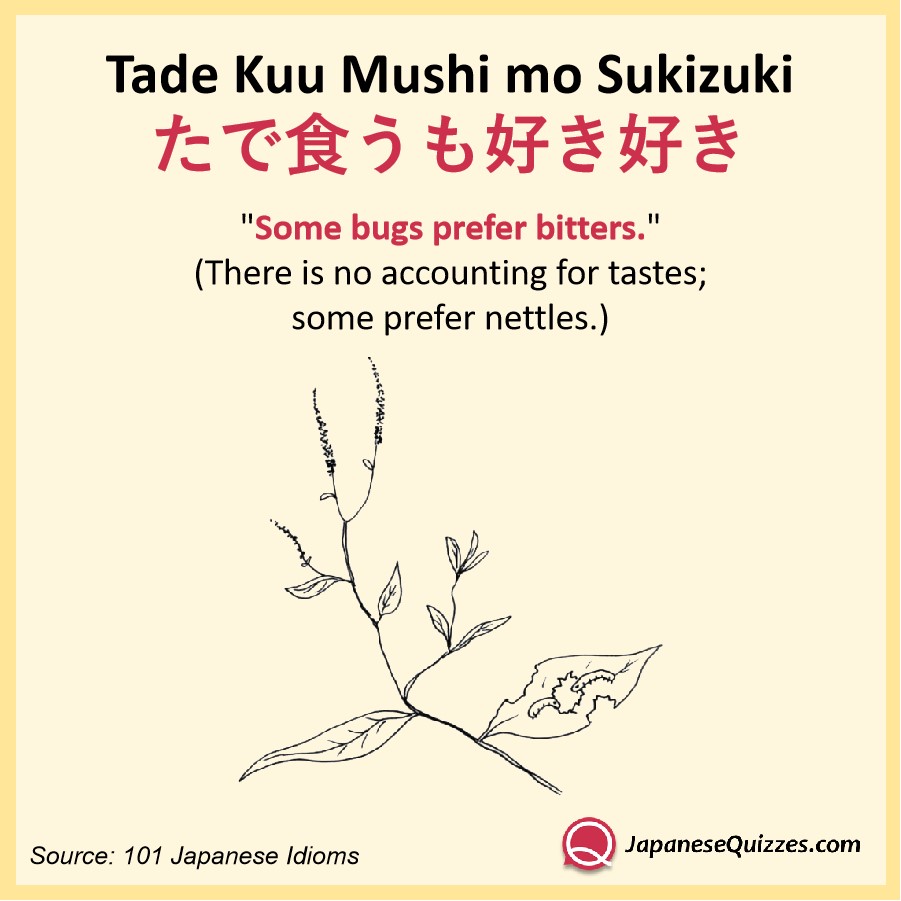
朝飯前
“before the morning meal”
(a piece of cake, an easy task)

Meshi literally means cooked rice. The morning’s cooked rice (breakfast) is the first source of energy for the day. A task that can be complete even before one’s first meal is something requiring almost no effort.
Sample text:
(Style: spoken/casual/A=female, B=male)
A: Kondo no koorasu no renshuu ne, yooji de derarenaku natta no. Kiyohara-san piano no bansoo hikiukete kureru kashira.
B: Daijoobu desho. Kitto hikiukete kureru n janai? Koorasu no bansoo nante kanojo ni totte wa, honno asameshi mae dashi ne.
A: 今度のコーラスの練習ね、用事で出られなくなったの。清原さんピアノの伴奏引き受けてくれるかしら。
B: 大丈夫でしょ。きっと引き受けてくれるんじゃない?コーラスの伴奏なんて彼女にとっては、ほんの朝飯前だしね。
A: Something’s come up, and I can’t make the next chorus practice. I was wondering if Ms. Kiyohara would be willing to take over the piano accompaniment.
B: I’m sure she’ll substitute for you, all right. For her, playing the accompaniment for the chorus is a piece of cake.
Japanese Idioms

渡りに舟
“a boat to cross on”
(timely assistance, something that saves the day )

Poetically, “when you need to cross the river, luckily you find a boat to take you.” The phrase means to “luck out.” Used when something fortunate occurs when you need it most. A timely stroke of luck.
Sample text:
(Style: spoken/casual/female)
A: Kodomo no mendoo o mite kureru hito o sagashiteta n da kedo, nakanaka ii hito ga inakute ne. Soshitara kyuuni tonari ni choodo ii hito ga utsutte kita no yo. Dooshiyoo ka to komatteita n da kedo, watari ni fune to wa kono koto ne.
A: 子供のめんどうを見てくれる人をさがしてたんだけど、なかなかいい人がいなくてね。そしたら急に隣にちょうどいい人が移って来たのよ。どうしようかと困っていたんだけど、渡りに舟とはこのことね。
A: I was searching everywhere for someone who could look after my child, but I couldn’t find anyone. Then all of a sudden the perfect person moved in next door! I was getting desperate, but she saved the day!
Japanese Idioms

住めば都
“Where one lives is the capital city.”
(Wherever one lives, one comes to love it.)

Miyako means “the capital”, but carries the connotation of best place, the center of everything, the place to be. This short expression is similar sentiment to “there’s no place like home.”
Sample text:
(Style: written/formal)
Watashi wa saisho, Kyuushuu wa amari suki dewa arimasen deshita. Shikashi sumeba miyako to iwareru yooni, ima wa kono Kurume ga watashi no daini no furusato no yoona ki ga shiteimasu.
私は最初、九州はあまりすきではありませんでした。しかし、住めば都といわれるように、今はここ久留米が私の第二のふるさとのような気がしています。
At first I didn’t like Kyushu. But as the saying goes, “Wherever one lives, one comes to love it.” Nowadays I feel as if Kurume is my second hometown.
Japanese Idioms

おのぼりさん
“One who journeys to the capital”
(country bumpkin, hick, hayseed, someone from the sticks)
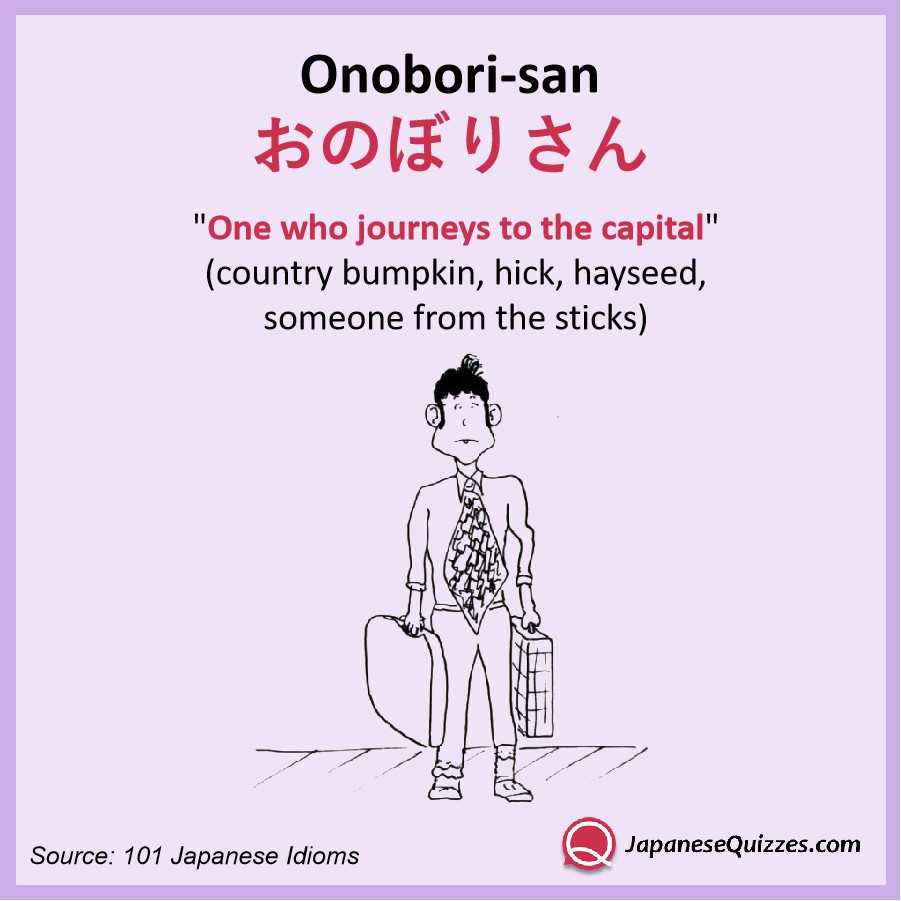
San in this phrase is the obligatory honorific that translates simply as “Mr.” or “Ms.” Nobori refers to heading toward the capital of Japan. With the addition of the honorific prefix o-, the phrase becomes a satirical reference to the stereotypical lack of sophistication of someone who has come from the “sticks”.
Sample text:
(Style: spoken/casual/female)
A: Kondo nyuusha shite kita Hara-san ne, chihoo no sanson kara jookyoo shite kita n da tte.
B: Aa, sore de na no ne. Ikanimo onobori-san tte kakkoo shiteru no wa.
A: 今度入社してきた原さんね、地方の山村から上京して来たんだって。
B: ああ、それでなのね。いかにもおのぼりさんってかっこうしてるのは。
A: You know the new employee, Ms. Hara? I hear she came to Tokyo from a small mountain village in the country.
B: Oh, that explains it. She certainly dresses like a country bumpkin.
Japanese Idioms

草分け
“parting the grass”
(pioneering, innovation, original thinking)

The phrase conjures up a man parting the tall grass with his hands. Metaphorically it means leading the way, going where no one has gone before, pioneering.
Sample text:
(Style: written/informal)
Kare no onshi wa nihon ni okeru denshi koogaku no kusawake teki sonzai de, genzai katsuyakuchuu no gijutsusha o nannin mo sodateteiru.
彼の恩師は日本における電子工学の草分け的存在で、現在活躍中の技術者を何人も育てている。
His teacher has led a pioneering life on the field of Japanese electronics and has educated many prominent engineers who are currently quite productive.
Japanese Idioms

石橋をたたいて渡る
“to tap a stone bridge before crossing it”
(to proceed with caution, to test the waters before jumping in)

Even a bridge made of stone (which on the fave of it is sturdier than a wooden bridge) needs to be tested before crossing. The English near-equivalent is “look before you leap”
Sample text:
(Style: spoken/casual/A=female, B=male)
A: Watashi, doo shite mo kabuken te kau ki ni naranai no.
B: Sore mo ii daroo. “Ishibashi o tataite wataru” tte yuu kotoba mo aru n dashi. Chokin ja amari fuenai kedo, yoojin shita hoo ga anzen daroo na.
A: 私、どうしても株券て買う気にならないの。
B: それもいいだろう。『石橋をたたいて渡る』っていう言葉もあるんだし。貯金じゃ余り増えないけど、用心した方が安全だろうな。
A: I simply don’t feel like buying stocks.
B: That’s OK. They say, “Tap a stone bridge before crossing it.” Keeping your money in savings accounts won’t accumulate much, but it’s always safe to be cautious.
Japanese Idioms



